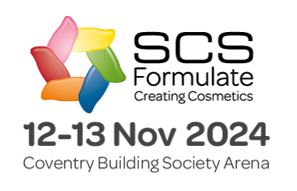Seminar
The Challenges of Delivering Cosmetic Actives – Role of the formulator
Time: 09:30 - 10:00
Date: Thursday 5 September
Synopsis
The skin has evolved to keep water in and other xenobiotics or foreign substances out. The outer layer, the stratum corneum, is a unique membrane that is about a sixth of the thickness of a piece of paper. It is composed of dead cells that are filled with keratin and are very dense in nature. Today we understand that it is this thin membrane that is the major barrier to effective targeting of actives from topical formulations.
Targeting of actives to specific regions of the epidermis and dermis is the ‘holy grail’ of skin delivery. However, skin penetration of most actives often does not exceed more than 2-4% of the applied amount. Partly this reflects a lack of focus on the vehicle and a lack of awareness that the fate of the active is linked inextricably to specific carrier components of the formulation. No single formulation can address the competing requirements of the diverse array of compounds we find in personal care and cosmetic products. Instead, consideration must be given to the solubility of the active in vehicle components as well as the residence time of those vehicle components in the skin. The overarching theme of my research is the identification of vehicle components that are optimal for a specific active. Over the years my work has demonstrated the utility of this approach using both in vitro and in vivo studies.
Advances in the range and sensitivity of analytical techniques available to scientists are already providing better insights into vehicle effects on skin delivery of actives. Building on these findings, we should be optimistic about our ability to create better and more efficacious formulations for consumers.
Speakers
 Majella Lane PhD Director, Skin Research Group - School of Pharmacy, University College London
Majella Lane PhD Director, Skin Research Group - School of Pharmacy, University College London
« Back




